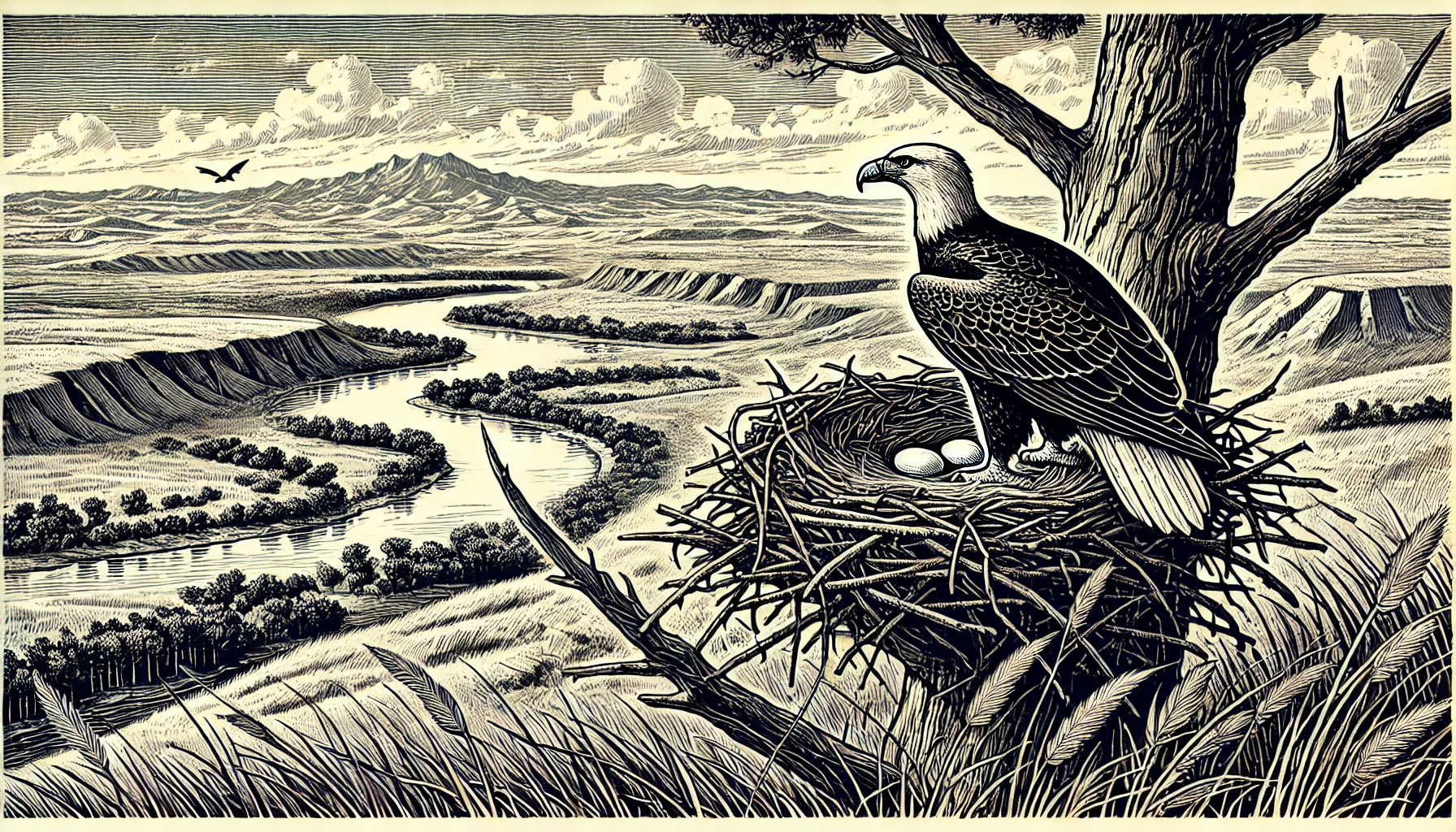Traveling Through Nebraska's Pioneers Park Nature Center

Pioneers Park Nature Center, located at 3201 South Coddington Avenue near the south shore of Holmes Lake in Lincoln, Nebraska, is a publicly owned educational institution that seeks to promote environmental awareness, provide opportunities for hands-on learning experiences, and foster an appreciation for the natural world. Officially opened in 1963, the nature center serves as a gateway to the larger Pioneers Park system, encompassing over 668 acres of diverse ecosystems, including prairies, woodlands, and wetlands.
The nature center's operations are overseen by the Lincoln Parks and Recreation Department. Throughout the year, the center offers a wide variety of educational programs and activities targeted at students of all ages. This includes environmental education programs that emphasize hands-on activities, field trips, and projects that encourage individuals to explore and learn more about the natural world. Topics covered in these programs range from Nebraskan wildlife, prairie management, and local ecology, drawing heavily from the center's diverse surroundings.
Several strategically placed observation areas within the nature center and surrounding parklands enable visitors to closely observe the local flora and fauna. Examples of such areas include the Chet Ager Environmental Education Building's outdoor observation deck and strategically placed bird feeding stations. Local wildlife found in and around the park includes populations of bobwhite quail, ringneck pheasants, and numerous species of waterfowl that utilize the nearby Holmes Lake.
One of the unique features of Pioneers Park Nature Center is the network of twelve miles of trails that serve to connect the center with other areas of the larger park system. Throughout the year, guests to the center can explore and learn about the unique ecosystems and features within Pioneers Park by accessing these networks of trails, which offer opportunities to take leisurely strolls through various habitats and appreciate the broader ecological diversity present within the larger park.
In addition to the interpretive trails, guided nature walks and special programs designed for specific groups or age ranges are typically offered throughout the year by center staff. Park maintenance activities, such as the regular prescribed burning and controlled habitat manipulation, effectively demonstrate an ongoing dedication to preserving the diverse ecosystems and natural habitats within Pioneers Park.
Preservation efforts made possible through collaborations and partnerships between the Lincoln Parks and Recreation Department, local community organizations, and educational institutions represent a vital component of the nature center's outreach and effectiveness. Serving as a regional hub for environmental education, the Pioneers Park Nature Center enriches the greater Lincoln community by fostering an appreciation for local ecology and cultivating important partnerships dedicated to preserving Nebraska's rich natural heritage.
Another fundamental aspect of the nature center's identity stems from the collection of high-quality educational materials, equipment, and materials made available for use in numerous educational activities. Given the emphasis placed on experiential learning opportunities, these materials significantly enhance the center's capacity to effectively provide hands-on learning experiences and field-based educational activities.
Considering Pioneers Park Nature Center as a starting point for exploration of the surrounding environment and local ecosystems has the potential to yield insightful discoveries about Nebraska's ecological diversity. Using the park's comprehensive network of interpretive trails, guided activities, and exhibits as educational tools can result in a deeply rewarding environmental exploration and learning experience.
The nature center's operations are overseen by the Lincoln Parks and Recreation Department. Throughout the year, the center offers a wide variety of educational programs and activities targeted at students of all ages. This includes environmental education programs that emphasize hands-on activities, field trips, and projects that encourage individuals to explore and learn more about the natural world. Topics covered in these programs range from Nebraskan wildlife, prairie management, and local ecology, drawing heavily from the center's diverse surroundings.
Several strategically placed observation areas within the nature center and surrounding parklands enable visitors to closely observe the local flora and fauna. Examples of such areas include the Chet Ager Environmental Education Building's outdoor observation deck and strategically placed bird feeding stations. Local wildlife found in and around the park includes populations of bobwhite quail, ringneck pheasants, and numerous species of waterfowl that utilize the nearby Holmes Lake.
One of the unique features of Pioneers Park Nature Center is the network of twelve miles of trails that serve to connect the center with other areas of the larger park system. Throughout the year, guests to the center can explore and learn about the unique ecosystems and features within Pioneers Park by accessing these networks of trails, which offer opportunities to take leisurely strolls through various habitats and appreciate the broader ecological diversity present within the larger park.
In addition to the interpretive trails, guided nature walks and special programs designed for specific groups or age ranges are typically offered throughout the year by center staff. Park maintenance activities, such as the regular prescribed burning and controlled habitat manipulation, effectively demonstrate an ongoing dedication to preserving the diverse ecosystems and natural habitats within Pioneers Park.
Preservation efforts made possible through collaborations and partnerships between the Lincoln Parks and Recreation Department, local community organizations, and educational institutions represent a vital component of the nature center's outreach and effectiveness. Serving as a regional hub for environmental education, the Pioneers Park Nature Center enriches the greater Lincoln community by fostering an appreciation for local ecology and cultivating important partnerships dedicated to preserving Nebraska's rich natural heritage.
Another fundamental aspect of the nature center's identity stems from the collection of high-quality educational materials, equipment, and materials made available for use in numerous educational activities. Given the emphasis placed on experiential learning opportunities, these materials significantly enhance the center's capacity to effectively provide hands-on learning experiences and field-based educational activities.
Considering Pioneers Park Nature Center as a starting point for exploration of the surrounding environment and local ecosystems has the potential to yield insightful discoveries about Nebraska's ecological diversity. Using the park's comprehensive network of interpretive trails, guided activities, and exhibits as educational tools can result in a deeply rewarding environmental exploration and learning experience.
